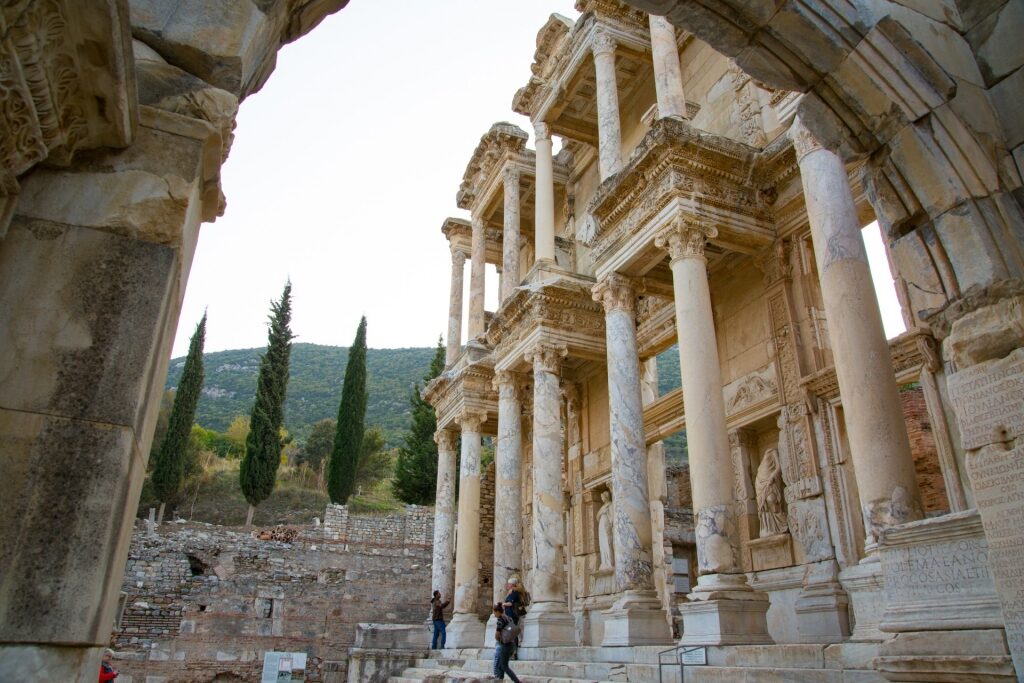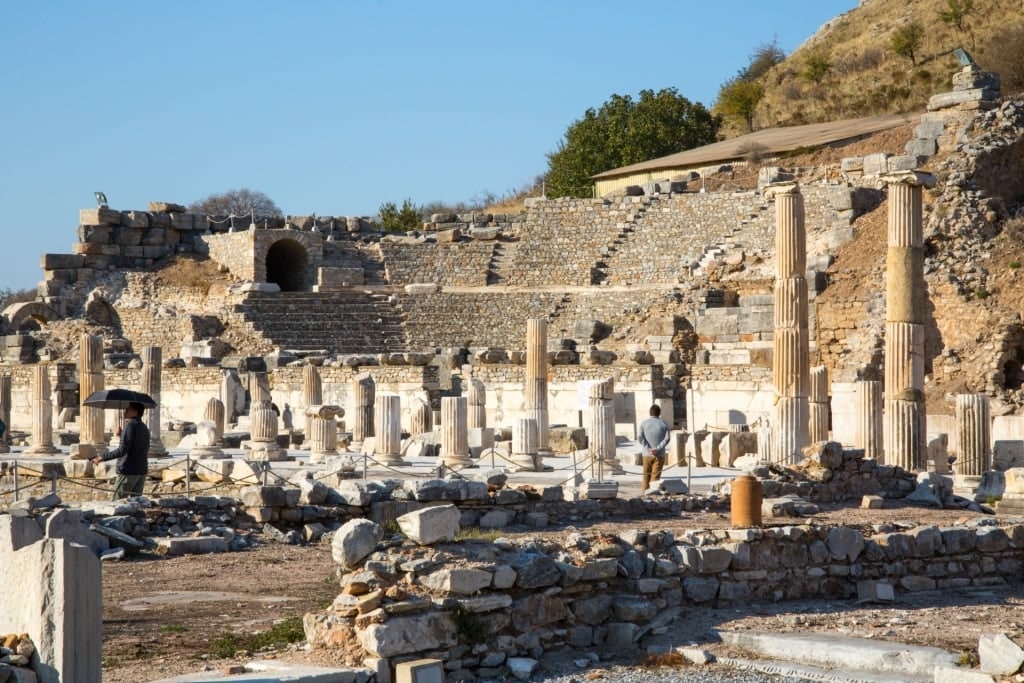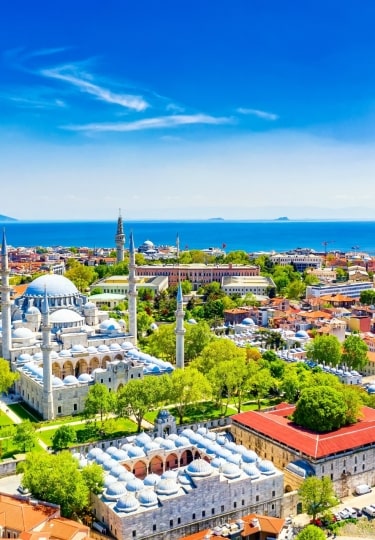Spring, summer, and fall are the best times to visit Turkey, which enjoys long, hot summers with clear skies. Tucked away in the far eastern corner of the Mediterranean, Turkey enjoys a typical Mediterranean climate—at least around Istanbul and the Aegean shores.
The season extends from April, when temperatures are cooler and the ancient ruins of Ephesus are brilliant with wildflowers, to the end of October, when nights are cooler and days are getting shorter.
Istanbul is a vast metropolis and buzzes with arts and cultural events all year round, although you’ll see the city at its most beautiful when the sun is shining.
Visiting Turkey by Season
Summer

Istanbul
Summers in Istanbul and along the Aegean coast are hot and dry. June, and to a greater extent, July and August, are peak months for both domestic and international tourism.
This is a time for swimming in the warm Aegean, spending time on the beach, and enjoying long, sultry evenings in buzzing rooftop bars along the Bosphorus. Average high temperature during July and August is 82°F (28°C) in Istanbul and even hotter on the coast, reaching 95°F (35°C).
Pace yourself with sightseeing, as places like Ephesus can be extremely hot and there’s little shade there. Meanwhile, take the ferry to the pretty, wooded Princes Islands in the Sea of Marmaris, home to some of the best beaches around Istanbul, where locals head to enjoy the peace and swim.
Fall
Fall is one of the best times to visit Turkey. Temperatures are easing off in September, with average highs of around 77°F (25°C).
The sea has been warmed all summer and is blissful for swimming. Nights are still warm. October is the last busy month of the season, with November ushering in more wind and rain; by now, average highs are down to 57°F (14°C).
Winter
Winters in Turkey can be cold and wet. Many facilities in coastal towns close down. Inland, on higher ground, there’s snow in the mountains, and the weather can be extremely cold between December and February.
On the other hand, if you do visit in winter, you will have magnificent antiquities like Ephesus to yourself. Warm up in a hammam, or Turkish bath, and make the most of the museums and historic buildings of Istanbul, which will be quiet.

Ephesus
Spring
March, and even more so, April and May, are glorious times to visit Turkey. Flowers are in bloom and the cold of winter is melting away.
Istanbul’s parks and gardens are brilliant with tulips in April, when there’s a tulip festival. By May, rooftop bars and al-fresco dining are in full swing around Istanbul’s lively neighborhoods.
You may want to note the times of Ramadan, which changes with the lunar calendar, and Eid Al-Fitr, when the end of Ramadan is celebrated. Turkey is a secular country and nothing will change during Ramadan for visitors, but a lot of Turks travel for Eid, as Americans do for Thanksgiving.
When Is Rainy Season?
Rain falls in Turkey from October to March, with December the wettest month, experiencing 4.1 inches (103mm) of precipitation. On high ground inland, there’s snow in the mountains.

Istanbul
When Is High Season?
Turkey’s high season is the summer, from June to August, a time to head for the beach and enjoy the warm sea and unbroken sunshine.
If you are visiting Ephesus, try to go in the early morning, before the day heats up. In Istanbul, cool off with boat trips along the Bosphorus, which is lined by magnificent palaces and summer homes.
Summer is a time of festivals in Istanbul, with events like the annual Jazz Festival and Opera Festival. July sees a swimming race between Europe and Asia across the Bosphorus, probably something you’d rather watch than join.
There’s an Opera and Ballet Festival in Ephesus in August, too, which is magical against the backdrop of the old ruins.
When Is Shoulder Season?
Shoulder season, the months of April, May, September, and October, is always a good time to go to Istanbul or Kusadasi. The weather is reliable, and popular sites that Turkey is known for, such as the Topkapi Palace, the Blue Mosque, and Ephesus, are not at full capacity.

Ephesus
When Is Low Season?
Turkey’s low season is in the winter months, when Istanbul can be cold, windy, and rainy, and there is a possibility of snow. Coastal towns are quiet.
Having said that, there can be some glorious sunny days in winter—but it’s not the best time to plan a visit.
Do you want to discover more about Turkey’s culture, history, and beautiful coastline? Browse Celebrity’s cruises to Turkey and plan your next vacation.


